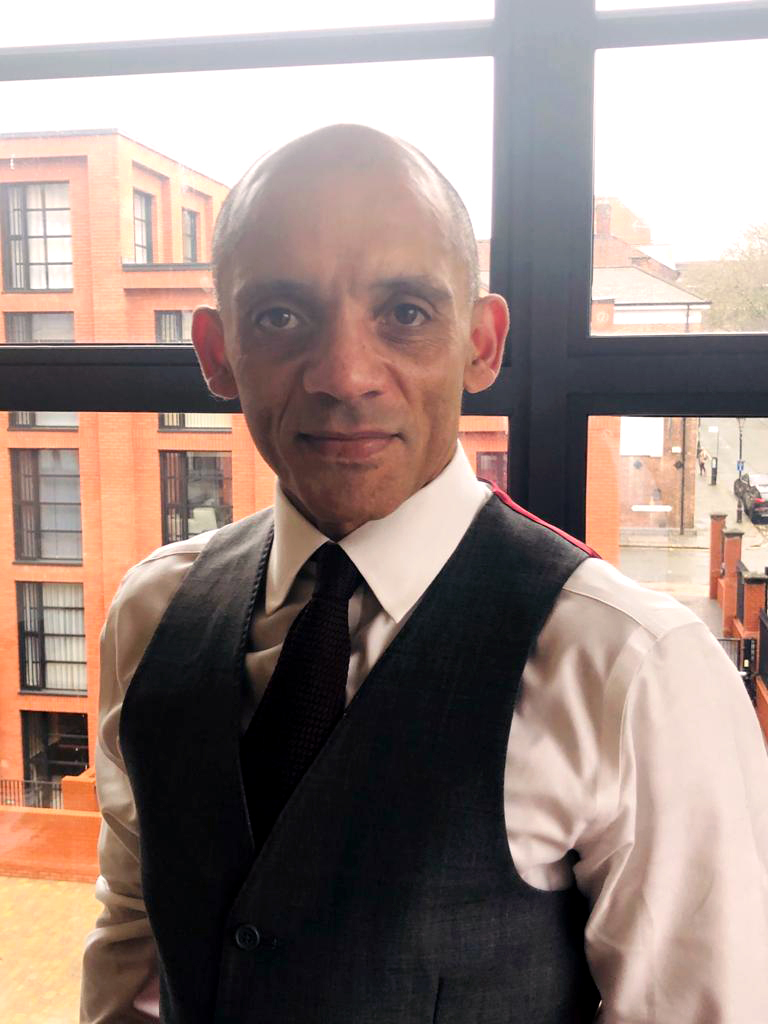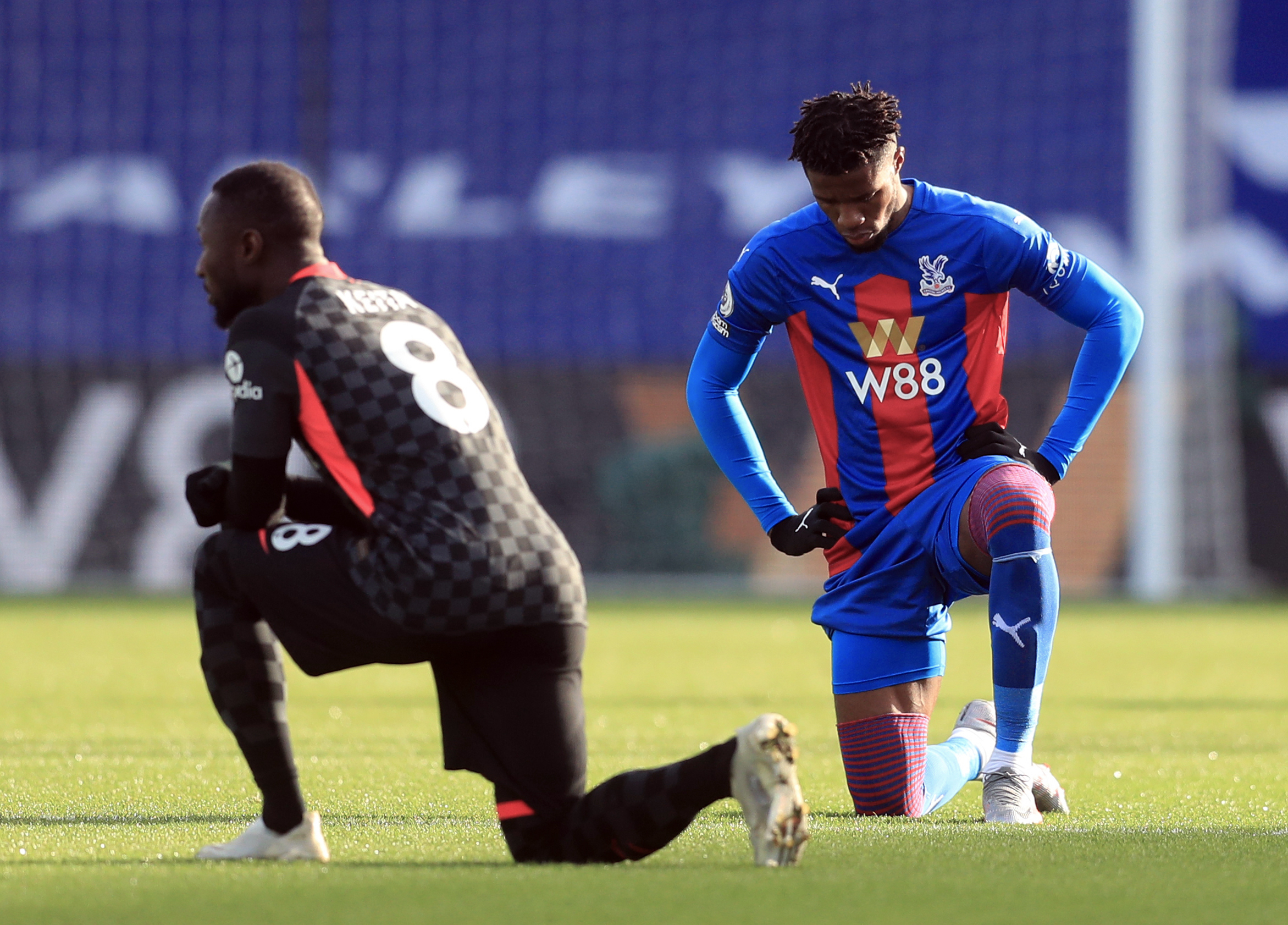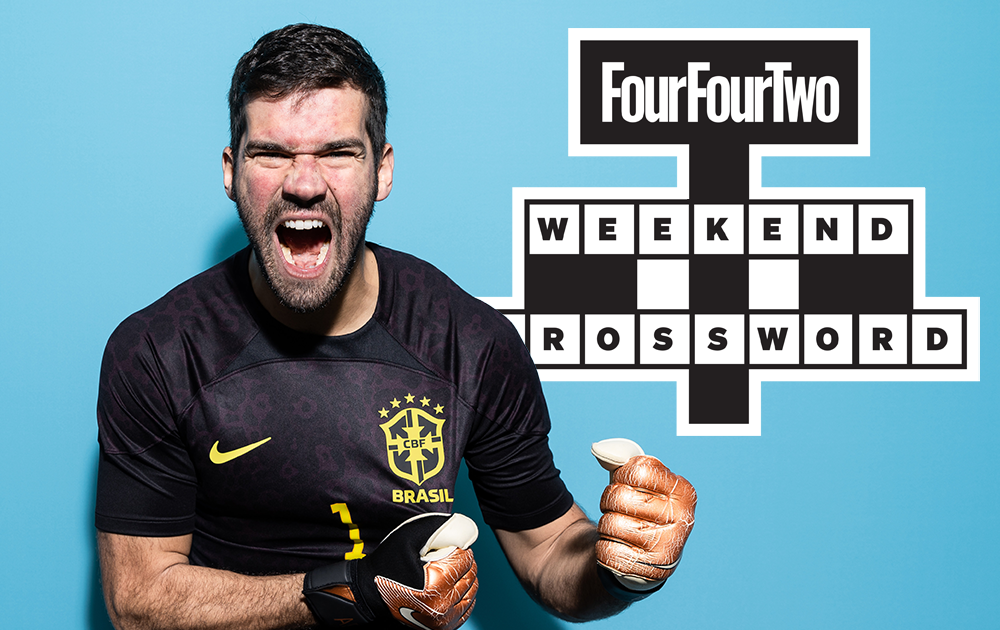Kick It Out chief feels people scared of saying wrong thing regarding racism

Good people who have fought against racism in the past are now frightened to talk about the issue for fear of saying the wrong thing, the new chief executive of Kick It Out claims.
Tony Burnett, who took up his role with the anti-discrimination body at the start of the month, played football at semi-professional and amateur level, and represented Huddersfield as a 17-year-old triallist in the FA Youth Cup against Liverpool.
He recalled a number of occasions where white team-mates intervened to defend him against racist abuse, but says the debate around racism has become so polarised and politicised that those same people are uncomfortable about getting involved.
He says Kick It Out’s biggest challenge is bringing these sorts of people into the conversation which will help eradicate discrimination from the game.
“The reason I never really had to deal with the racist incidents when they happened was because my white team-mates dealt with them,” he told the PA news agency in his first interview since taking up the job.
“That’s the power of football for me, and that’s why I’m so upset when those same white team-mates are feeling disenfranchised from this race discussion, because they’re frightened of getting into it, they’re frightened of saying the wrong thing, they’re frightened of the labels they’re supposed to use. And they’re the people who fought for me.
“So we’ve got something wrong when good people are frightened of getting into a discussion they have fought for all their lives.
The best features, fun and footballing quizzes, straight to your inbox every week.
“There are good people out there, we need to reignite their passion for this cause and find a way to bring them back into the discussion.”

Burnett said he “doesn’t care” if players take the knee or not, saying it was a personal choice.
The gesture has been almost universally observed in the Premier League since the competition restarted after the first coronavirus lockdown last summer, but its impact has been questioned with Kick It Out chair Sanjay Bhandari likening it to wallpaper.
“It frustrates me because as a society, we started a discussion about discrimination, about racism and what it looks like,” Burnett said.
“For some reason unknown to me, that discussion started getting side-tracked and hijacked when we started talking about statues, and then we stopped talking about discrimination and race.
“Then we started talking about Black Lives Matter – is it political, is it not political? – and we stopped talking about discrimination and race. Now we’re talking about taking the knee.
“How people choose to stand up against discrimination is their personal choice, the players included, any human being. Whatever vehicle they use is up to them.

“It’s a stupid conversation when we’re punishing people who’ve got positive intent, but don’t know the words to use.”
Asked whether some players might have felt uncomfortable about taking the knee but feared a backlash for not taking part, he said: “Are we surprised that young people, and young men in particular, who have been brought up in a life engulfed in football, aren’t necessarily politically aware of some of the issues surrounding race?
“Of course not. And they’re being asked to take a particular stance in support of or against certain issues without that historical context.”
The abuse of footballers on social media is just an example of the hate that spreads on these platforms. We want assurance from Twitter and Facebook that online hate will continue to be taken seriously.— Kick It Out (@kickitout) February 11, 2021
On February 11, Kick It Out joined forces with football’s other key governing bodies to write to the chief executives of Twitter and Facebook, calling on them to take action to stop their platforms becoming “havens of abuse”.
A number of players have faced appalling abuse online in recent weeks.
Burnett said that a response had been received and that Kick It Out and the other football authorities were “comforted by the fact that those organisations are taking our letter seriously”.
He said it remained vital that individuals were held accountable for the material they post, and that they should be identifiable “right down to the device that they use”.
 Join The Club
Join The Club





